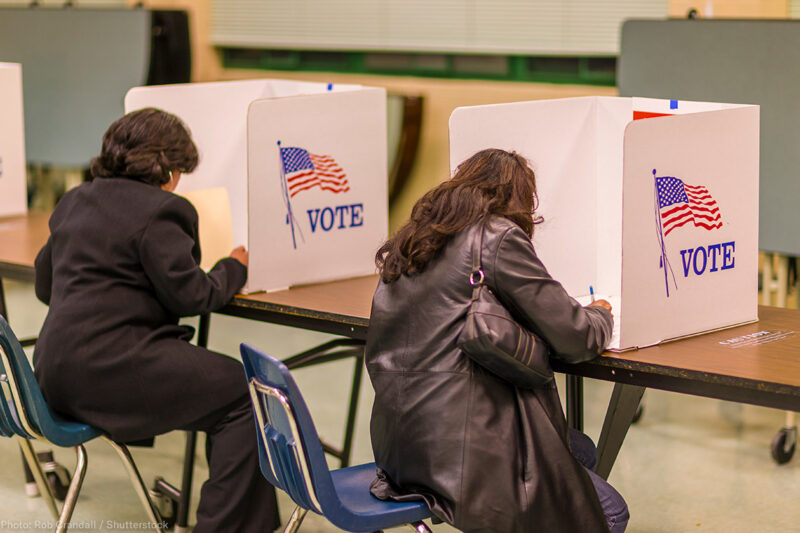Oregon Resists Assault on Abortion Rights; Alabama and West Virginia Vote to Curtail Access


UPDATE (11/6/2018):
Oregon: Measure 106 failed. It would have prohibited state Medicaid insurance and other public funding from paying for abortion.
West Virginia: Amendment 1 passed, banning state Medicaid insurance from covering abortion. It also altered the state constitution to exclude the right to abortion, paving the way to criminalize it should Roe v. Wade be overturned.
Alabama: Amendment 2 passed, making it state policy to assign legal rights to fetuses. It also excludes the right to abortion from the state constitution.
These ballot measures in West Virginia and Alabama will seriously curtail access to abortion in those states.
In less than two weeks, voters in three states will weigh in on measures that are designed to restrict access to abortion and take away a woman’s right to make her own decisions about her reproductive health care.
In and , voters will consider ballot proposals that could immediately ban state Medicaid insurance coverage for abortion, making this essential reproductive health care inaccessible for low-income women. In , politicians are attempting to enshrine, via ballot, anti-abortion rhetoric in the state constitution and assign legal rights to fetuses.
What’s worse, the measures in West Virginia and Alabama would exclude the right to abortion from those states’ constitutions. This step, in combination with the fact that both states still have pre-Roe bans criminalizing abortion on their books, could lead to abortion being completely outlawed should the Supreme Court overturn Roe v. Wade and return the matter of the legality of abortion to the states. Not only would the Alabama measure lead to the criminalization of abortion, but it could also potentially outlaw certain forms of birth control as well once Roe’s protections are gone.
In other words, the proponents of these measures are trying to hoodwink voters into giving away their rights now and avoid the messy legislative battles sure to come in the wake of a Roe reversal.
Indeed all three proposals are part of a broader strategy by the anti-abortion movement to test just how far it can go in restricting reproductive health care, and they come at a time when the future of legal abortion in the United States is at unprecedented risk. By some estimates, would either outlaw abortion entirely or severely restrict it should the Supreme Court overturn or gut Roe.
have so-called “trigger laws” on the books that would immediately outlaw abortion if the courts allow it. Another , including West Virginia and Alabama, have pre-Roe laws still in place that would criminalize women, doctors, or both for abortion. And this doesn’t include other state legislatures controlled by anti-abortion politicians, who , have passed more than 400 restrictions designed to put abortion care out of reach.
The consequences of abortion restrictions fall hardest on women of color, poor communities, rural women, LGBTQ individuals, and young people. A woman’s ability to decide when and whether to become a parent should never be tied to how much money she makes, how she is insured, or where she lives. Anti-abortion politicians’ relentless attempts to restrict abortion care will only result in more women being forced to carry unwanted pregnancies to term, either because they can’t afford to pay for their procedure out of pocket or because clinics in their communities have closed.
For years, the ACLU and our state affiliates have been fighting these restrictions in the courts and in state legislatures. But this election season, we’re working hard to defeat these initiatives at the ballot box. In West Virginia, the ACLU is working with a strong coalition on the ground to ensure people ; the ACLU of Oregon is a founding member of the campaign in Oregon to tell people to vote No on Measure 106; and the ACLU of Alabama is a member of the campaign, which urges people to "Vote No on Amendment 2."
While we continue to push back against these unjust laws, it’s up to all of us to make our voices heard at the polls this year, not just in Alabama, West Virginia, and Oregon, but across the country. That’s why we’re asking you to vote like your rights depend on it — because they do.

